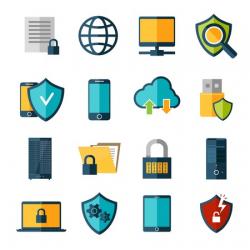Five reasons why every organization should conduct regular cybersecurity self-assessments
 2017 was filled with news about cybersecurity, including phishing
scams, ransomware and new attack methods. And as the year turns to 2018, security
experts predict even bigger attacks and smarter hacks that will be met with heavy
fines slapped on regulated organizations for not preventing or minimizing a
breach on their watch.
2017 was filled with news about cybersecurity, including phishing
scams, ransomware and new attack methods. And as the year turns to 2018, security
experts predict even bigger attacks and smarter hacks that will be met with heavy
fines slapped on regulated organizations for not preventing or minimizing a
breach on their watch.
Adhering to compliance standards and finding gaps in data security is a multi-faceted process that requires a holistic approach, expertise and vigilance. If your organization hasn't done a self-assessment of your cybersecurity and compliance processes, or done so recently, now is the time.
Research shows that more than 56% of organizations reported moderate or severe impact of security challenges on their cloud computing use. Even more reported compliance and regulation challenges (451 Research). For organizations that must meet regulatory standards-like HIPAA, PCI, SOC, ITAR, FIPS or CJIS-the disruption and consequences in the event of a breach can cost more than they are worth in fines, a tarnished reputation and remediation efforts.
After working with hundreds of organizations on their compliance and data security processes, I'd like to share five key benefits of a cybersecurity self-assessment and offer you an easy-to-use assessment tool. This tool scores your risk across multiple factors, including leadership's involvement in assessing security risks, remote employee access, cybersecurity insurance, compliance standards and more.
Why should you perform a self-assessment of your cybersecurity risk factors? A cybersecurity self-assessment can help your organization:
1. Measure security risks objectively across teams and roles
Even the most brilliant and passionate IT teams, partners and vendors can sometimes ...
FREE Membership Required to View Full Content:
Joining MSDynamicsWorld.com gives you free, unlimited access to news, analysis, white papers, case studies, product brochures, and more. You can also receive periodic email newsletters with the latest relevant articles and content updates.
Learn more about us here